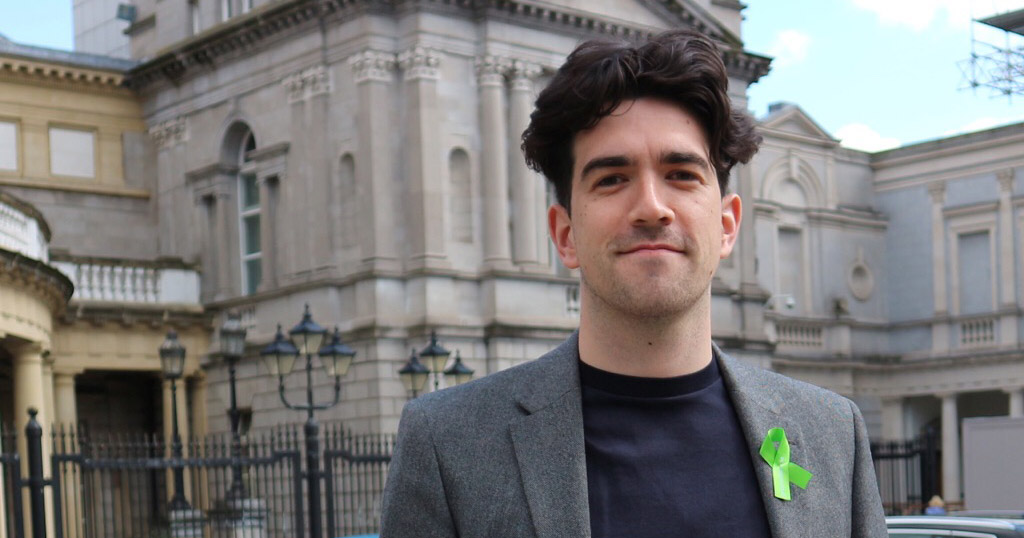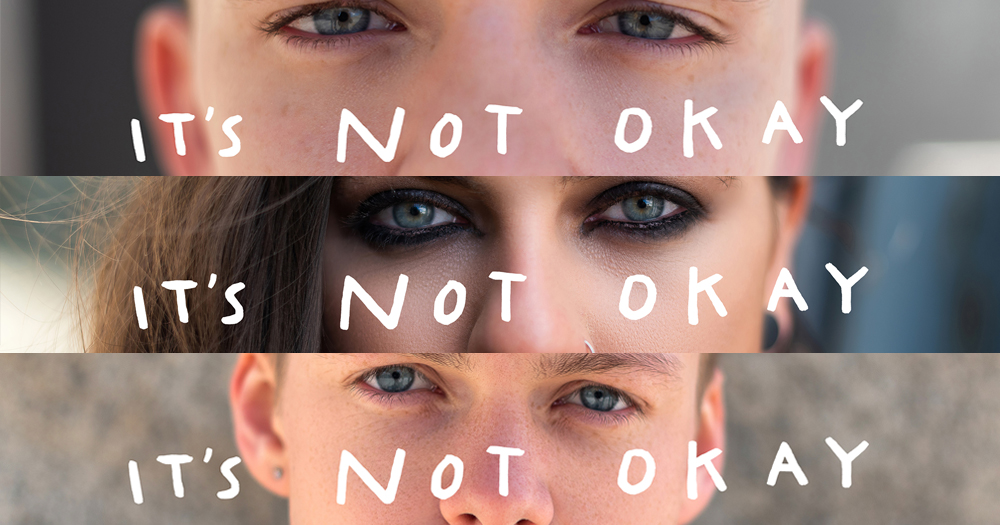CW: This article contains descriptions of violence and details of a homophobic attack.
Following a vicious attack, Danilo Matta is now calling on the Government to implement hate crime legislation to make Ireland a safer place for the LGBT+ community.
Danilo Matta was on his way home from a night out with friends when he was the victim of a homophobic attack outside his Dublin flat in the early hours of Saturday morning.
The 28 year-old was brutally beaten with a steel bar after saying goodbye to his boyfriend.
Danilo says although he is recovering from his physical injuries, emotionally, the attack has made him anxious about walking on the street.
“Physically, I am okay. My body is not in pain anymore.
“Emotionally? I don’t know yet it’s hard to say, but I feel worried sometimes when I go out and see groups around like that one.”
Since the attack, Danilo says he has not heard from the Gardaí concerning the assault.
He says he has received an outpouring of support from the LGBT+ community for which he is very grateful.
Danilo said that he hopes by sharing his story, he can help create a positive change. Most importantly, he says he hopes to see the introduction of hate crime legislation.
“My wish is that no one should experience hurt in this kind of way anymore. It’s horrible. I just want Dublin to be a bit more safe for everyone. Not just gay people, but for everyone.”
https://www.facebook.com/permalink.php?story_fbid=10157550474589921&id=663189920
Calls for Hate Crime Legislation renewed

On September 27, Senator Fintan Warfield renewed calls for action on legislation on homophobic and transphobic hate crime following the homophobic attack on Danilo.
He said that the Department of Justice is just “sitting on their hands” on an issue that is the “number one priority for the LGBT+ community.
“We know it’s the number one priority because the most comprehensive report of the LGBT community [Burning Issues 2] showed that.
“David Stanton launched that report a few years ago. He, alongside Charlie Flanagan, is now the minister who has the responsibility to do something about this.
“How many times do I have to come in here and talk about these attacks? How many more attacks must the LGBT community face?
“We have hate problems. He has the power to deal with it, rather than sit on his hands, and I want to see action.”
Know Your Rights: Call It Out

Co-Director of the Hate and Hostility Research Group (HHRG), Amanda Haynes says that “policy guidance and training is required to ensure that the hate element of crimes are recorded accurately and comprehensively in practice.”
“The University of Limerick’s Hate and Hostility Research Group’s research on the treatment of hate crime in an Irish context has found that, in the absence of legislation there are multiple points in the criminal process at which the hate element of a crime can ‘disappear’ from the system, including at the point of reporting.
“Although, laudably, An Garda Síochána have made it mandatory to ask the Garda logging a crime report whether there may have been a discriminatory motivation involved in the crime, further policy guidance and training is required to ensure that the hate element of crimes are recorded accurately and comprehensively in practice.”
Haynes said it is essential that the LGBT+ community know that LGBT+ liaison officers are available and their involvement can ensure proper care and due diligence is given to LGBT+ victims of crime:
“Our research supports the importance of specialist officers to communities’ experiences of An Garda Síochána. In research with members of the trans community published in 2018, we found that although most of the people we surveyed were not aware of the availability of LGBT liaison officers or diversity officers more generally, those who had had contact with these specialist officers found them to be trans aware in contrast to the majority perception of An Garda Síochána as lacking trans awareness.”
Yesterday, @HHRGatUL and @TENI_Tweets launched the #CALLITOUT campaign at @UL. Call It Out highlights the harm caused by Homophobia, Biphobia and Transphobia in Ireland. Photos and info at @ilovelimerick: https://t.co/Enuk1WKbJE pic.twitter.com/tG5G2KmlYR
— Faculty of Arts, Humanities & Social Sciences @UL (@ResearchArtsUL) May 31, 2019
She adds that as a result of research, the HHRG is calling an expansion of the number of LGBT+ liaison officers nationwide.
“Our 2017 publication ‘Lifecycle of a Hate Crime’ found that the LGBT liaison officer role was under-resourced. We found that these are not full-time positions, and limited training is offered.
“While calling for foundational training in diversity for all officers, we have previously recommended an expansion of the number of specialist liaison officers available nationwide, a programme of continuous professional development for officers occupying this role and the incorporation of specialist officer roles into rostering arrangements, such that at least one specialist officer will be available 24/7 in each Garda district.
“In line with the European Commission’s (2014) suggested practices to strengthen the implementation of the Framework Decision on combatting racism through the criminal law, we have also called for specialist hate crime units and hate crime officers to be introduced country-wide.
“Such officers should be specially trained, not only in the investigation and prosecution of hate crime but also on the impacts of hate crime on direct victims and their communities.”
If you are the victim of a homophobic, biphobic or transphobic hate crime, The Call it Out website provides specific advice on reporting hate crime after the fact.
If you were affected by any of the issues highlighted in this article you can reach out to the following:
LGBT Helpline
T: 1890 929 539 | W: www.lgbt.ie
TENI Helpline (Transgender Support)
T: 085 147 7166 | W: www.teni.ie
Gay Switchboard
T: 01-872 1055 | W: www.gayswitchbaord.ie
Dublin Rape Crisis Centre
T: 01 661 4911 | E: [email protected] | W: www.drcc.ie/
© 2019 GCN (Gay Community News). All rights reserved.
Support GCN
GCN is a free, vital resource for Ireland’s LGBTQ+ community since 1988.
GCN is a trading name of National LGBT Federation CLG, a registered charity - Charity Number: 20034580.
GCN relies on the generous support of the community and allies to sustain the crucial work that we do. Producing GCN is costly, and, in an industry which has been hugely impacted by rising costs, we need your support to help sustain and grow this vital resource.
Supporting GCN for as little as €1.99 per month will help us continue our work as Ireland’s free, independent LGBTQ+ media.
